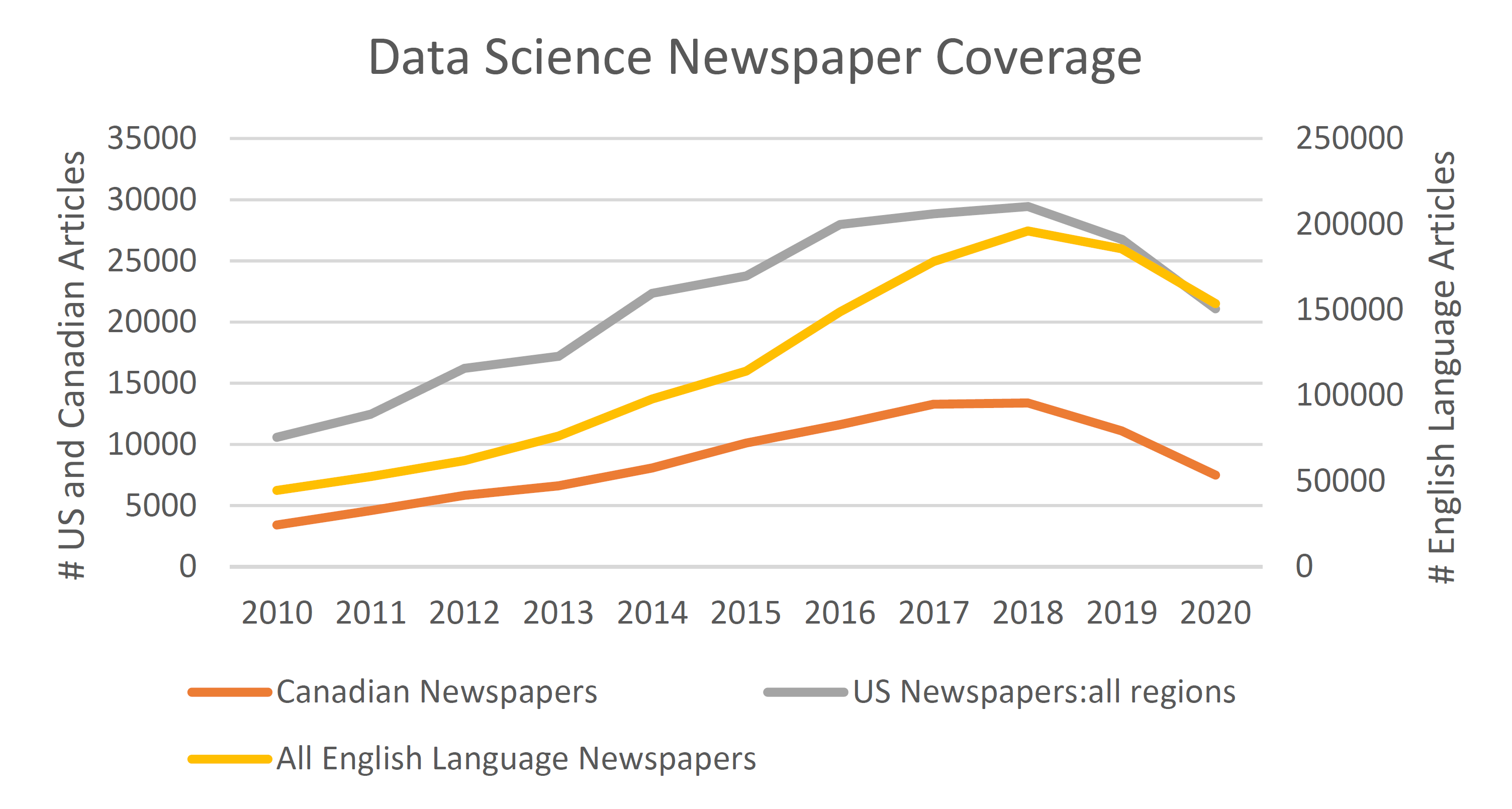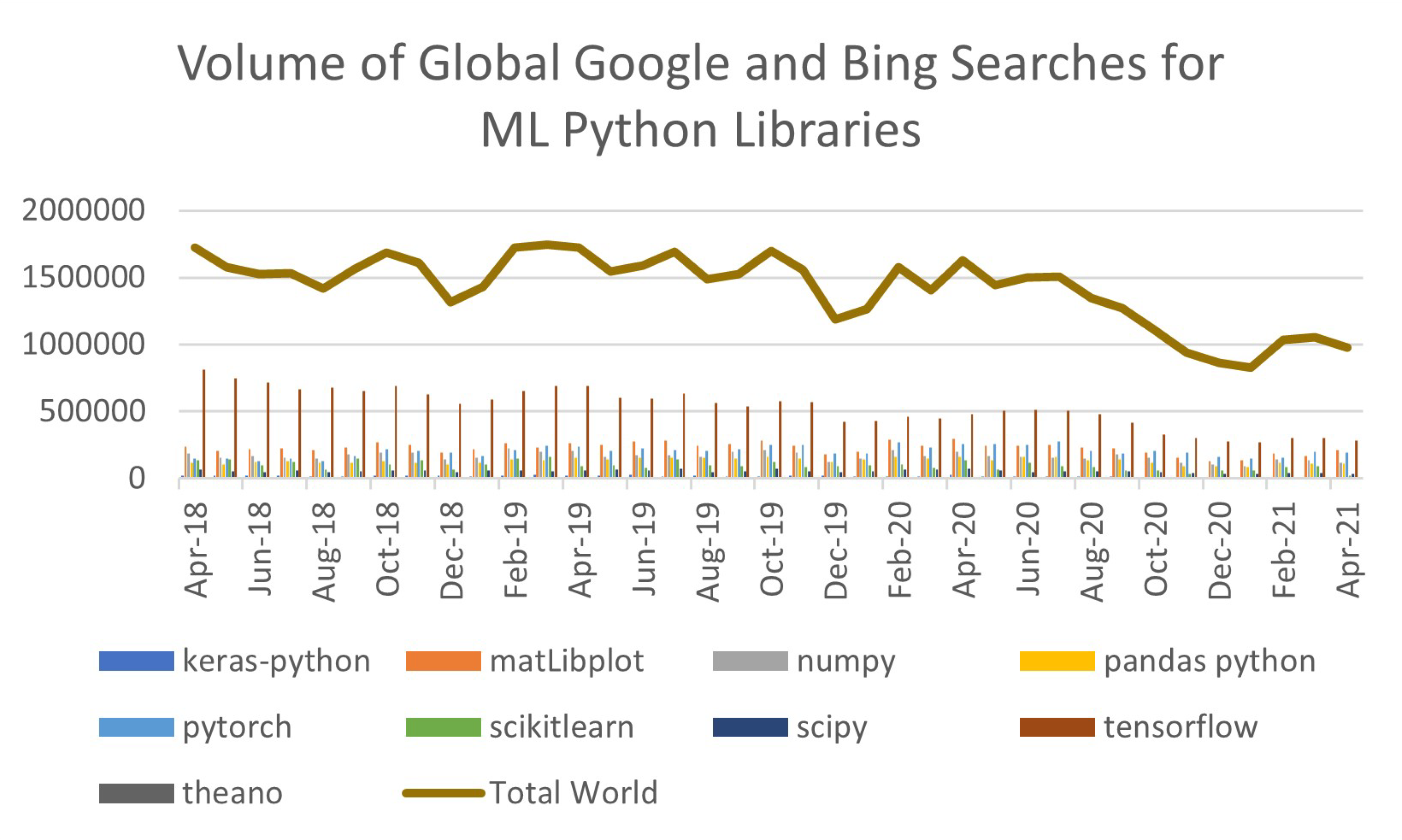We complement our data from Compute Canada with available data from the Natural Sciences and Engineering Research Council of Canada (NSERC). Most Canadian Researchers working in the natural sciences and engineering maintain support for their ongoing research through an NSERC Discovery Grant (DG).
In some cases, DGs are used as eligibility requirements for other funding opportunities such as Research Tools and Instruments grants; therefore, DGs are a good proxy for the quantity of academic activity in these areas. Given our focus in data science related research, we collected data from the Computer Science, Mathematics and Statistics, and Electrical and Computer Engineering DG Committees on the number of grants awarded, success rates and values of awards (see Table1).

There are a few key takeaways from Table 1.
1
First, it is clear that there has been a large drop in awarded grants in the 2020-2021 period. Electrical and Computer Engineering appeared to have experienced the largest decline, but even the least impacted of the three groups (Computer Science) had a drop of approximately 41%.
2
Second, the success rates by committee have typically fluctuated from around 60%-87% for the 4 years prior to the pandemic. Even though the success rate statistics by committee for the 2020-2021 competition are not yet available (indicated by n/a in Table 1), if the success rates are similar to those in the recent past, the fall in awards again points to a large decrease in applications to support new projects.
The magnitude of the drop is at least partly explained by the fact that, in recognition of the extraordinary impact of the pandemic and lockdowns on the ability to work on Campus in offices or in labs, NSERC announced in April 8, 2020 that, “To lessen the impact due to COVID-19 and to support all of our researchers and highly qualified personnel, all active Discovery Grants can elect to receive a one year extension with funds at their current funding level … Grantees due to apply in competition 2021 can elect not to apply for funding this summer/fall during these tumultuous times.”3. However, it is important to recognize that this additional funding and extension of existing awards was a response to the unprecedented negative impact of the pandemic on research in the higher education sector, and, while the situation in Canada improved somewhat in the first few months following the NSERC decision, the second wave of the pandemic that forced the higher education sector online again in the fall was worse. Overall, the evidence available would point to a substantial disruption to Canadian early stage R&D in the area for both the business and higher education sectors.
3. https://www.nserc-crsng.gc.ca/Media-Media/NewsDetail-
DetailNouvelles𝑒𝑛𝑔.𝑎𝑠𝑝?𝐼𝐷 = 1144


